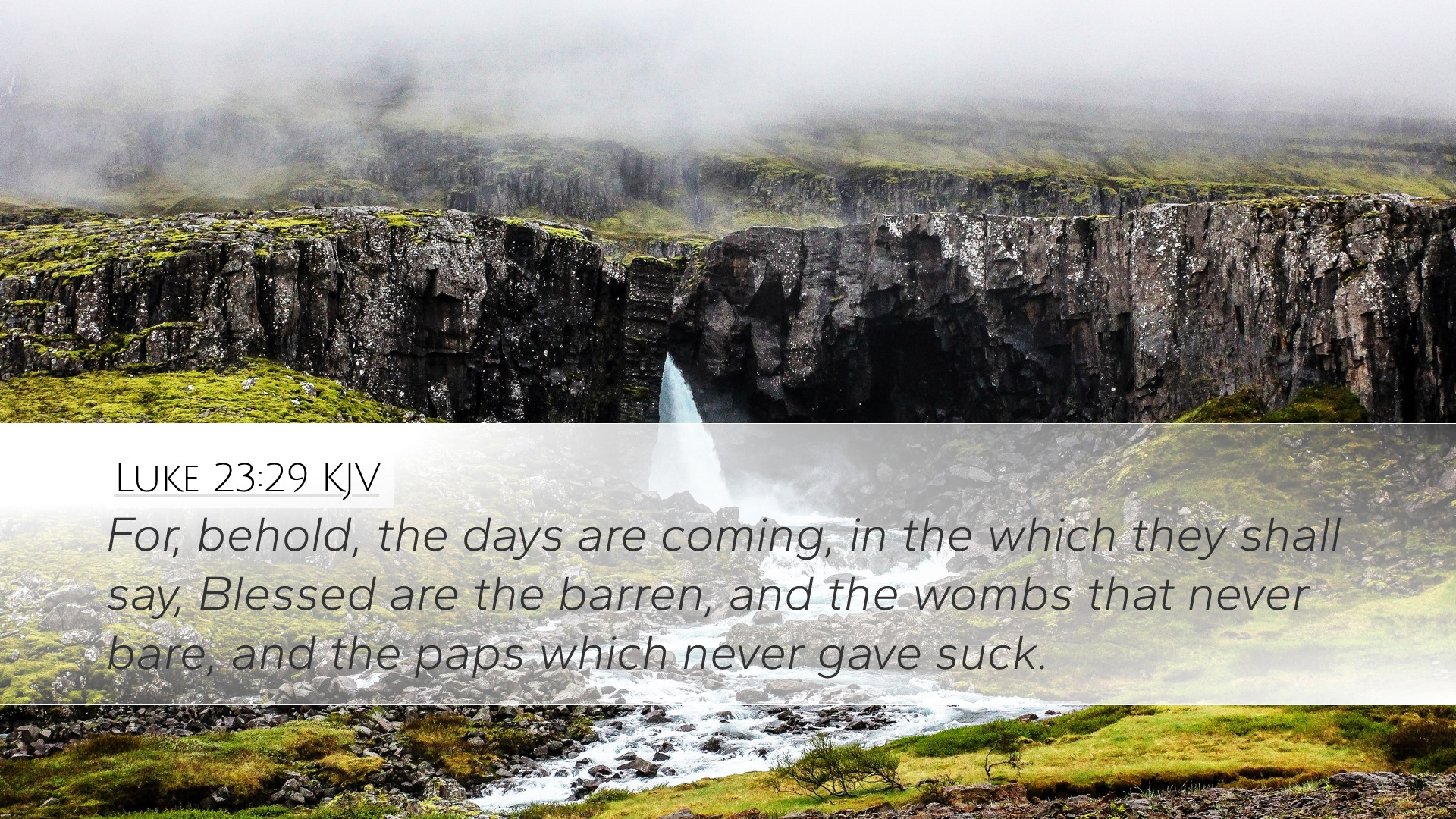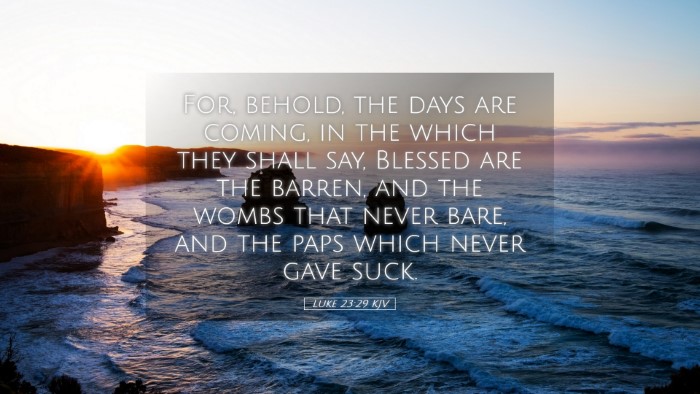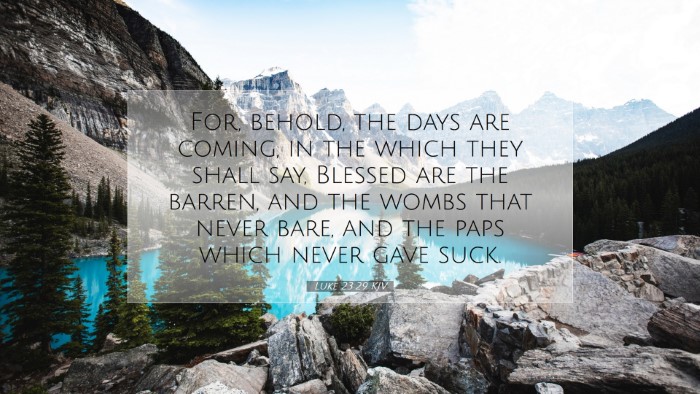Commentary on Luke 23:29
Luke 23:29 (KJV): "For, behold, the days are coming, in the which they shall say, Blessed are the barren, and the wombs that never bare, and the paps which never gave suck."
Introduction
This verse is a poignant declaration of Jesus to the women of Jerusalem as He faces crucifixion. It reflects profound theological implications concerning suffering, motherhood, and the coming judgment. The emotional weight of this passage invites deep reflection on the nature of God's Kingdom and the responses of His people during times of tribulation.
Contextual Analysis
Prior to this statement, Jesus continues His journey to Golgotha, addressing the dismal understanding of the people as He faces dire circumstances. The context provides a stark backdrop to His prophetic words, capturing both a moment of immediate sorrow and a larger eschatological viewpoint.
- Historical Context: The verse directly references the coming destruction of Jerusalem, echoing earlier prophetic warnings from Jesus about the city’s fate (Luke 19:41-44).
- Literary Context: This statement follows Jesus' earlier doubts cast against the onlookers, indicating a shift from personal suffering to communal implications regarding society's values.
Theological Insights
In this passage, Jesus invites a deeper understanding of what it means to be blessed, reframing societal perceptions around motherhood and societal norms.
- Blessed Are the Barren: Jesus declares a counterintuitive blessing. In ancient Jewish culture, motherhood was profoundly valued, so this statement is shocking. However, it prefaces a new understanding regarding sacrifice and hope amid calamity.
- Impending Judgment: The lament points to a future when the reality of divine judgment will render certain roles and statuses irrelevant, reshaping previous conceptions of blessing.
- The Role of Suffering: Here, Jesus acknowledges the pain that women would endure in the face of tragedy while simultaneously ratifying a future hope that transcends immediate suffering.
Commentary from Respected Theologians
Matthew Henry
Matthew Henry interprets this verse as Jesus acknowledging the veneration of motherhood while simultaneously lamenting over the world's values. He emphasizes that the hearts of those who were to mourn were to reflect on the spiritual state of affairs, suggesting a repentance and turning back to God amidst sorrow.
Albert Barnes
Albert Barnes focuses on the prophetic nature of Jesus' statement. He expounds upon the cultural understanding of the time, stressing how it diverges from traditional views of honor placed upon motherhood. Barnes associates this verse with the broader theme of Christian hope that emerges even amid devastation, further emphasizing Jesus’ compassion towards the grieving women.
Adam Clarke
Adam Clarke provides an analytical perspective regarding the juxtaposition of blessings and woes. He interprets “Blessed are the barren” as part of Jesus’ prophetic lamentation about the destruction of Jerusalem. Clarke notes that this grief over consequences serves to redirect individuals from worldly status to eternal considerations.
Practical Applications
This passage not only offers theological insights but also practical applications for believers in contemporary society. Here are a few ways to understand and apply the message of Luke 23:29:
- Redefining Blessings: Modern believers are called to reassess what it truly means to be blessed. Suffering does not disqualify one from God's favor; rather, it may lead to deeper spiritual insight and resilience.
- Empathy for the Suffering: As Jesus speaks to the grieving women, so too should followers of Christ cultivate a deep compassion for those experiencing trials and tribulations. This empowers the church to offer hope and support to the broken-hearted.
- Looking to Eternal Hope: The overwhelming nature of suffering should compel believers to place their hope in the coming Kingdom of God, where justice and mercy will reign supreme, ensuring that present trials are not the end of the story.
Conclusion
Luke 23:29 serves as a haunting reminder of the complexities of human experience, where earthly values often clash with divine truths. Jesus’ words resonate across time, inviting pastors, students, theologians, and scholars to reflect on the intersection of suffering and blessing. This call for introspection encourages a community grounded in compassion and hope, poised to serve those amidst trials while affirmatively pointing to the promise of redemption and restoration found in Christ.


